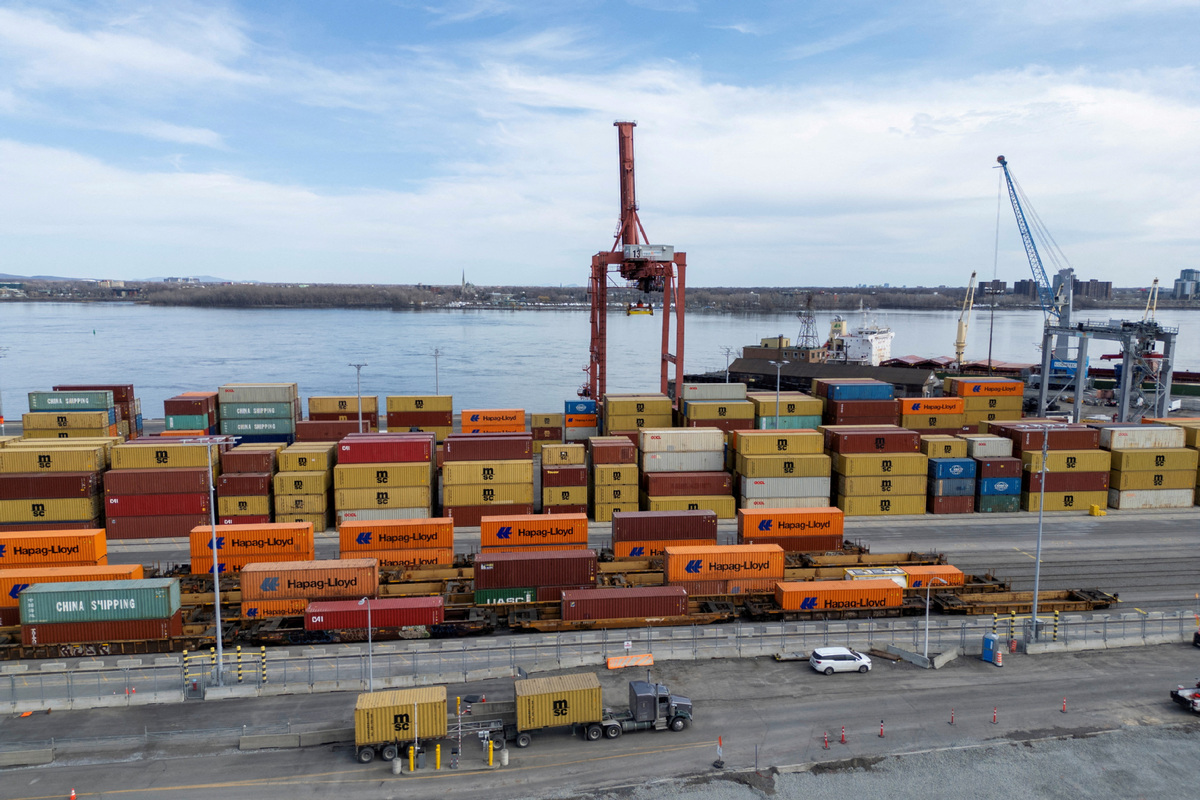 A drone view shows cranes, shipping containers and transport trucks at the Port of Montreal in Montreal, Quebec, Canada, April 14, 2025. [Photo/Agencies]
A drone view shows cranes, shipping containers and transport trucks at the Port of Montreal in Montreal, Quebec, Canada, April 14, 2025. [Photo/Agencies]
A claim by Uni磁力多ted States President Donald Trump that the US and Canada have a "natural conflict" in trade may overstate competition and overlook the economic integration between the two countries, experts say.
During a meeting with Canada's Prime Minister Mark Carney at the White House on Oct 7, Trump said there is a natural conflict in the bilateral trade relationship.
Mesbah Sharaf, an economics professor at the University of Alberta, said Trump was probably referring to the fact that the two economies produce and export many of the same goods.
"This overlap creates competition rather than full complementarity," Sharaf said.
The most visible areas of competition, he said, include energy, automobiles, steel and aluminum, and softwood.
"Both countries seek to protect jobs and industries that serve similar markets, which naturally creates conflict, even though the overall relationship remains strong and deeply integrated."
Trump's protectionist trade agenda, which "relies heavily on tariffs", puts long-term pressure on Canadian industries that compete directly with US producers, such as auto parts, lumber and metals, he said.
"Even without new tariffs, the uncertainty around US trade policy would discourage Canadian investment and push companies to diversify away from the US market."
On the prospects for a new trade pact, Sharaf was cautious.
"Reaching a new trade agreement between the US and Canada is unlikely in the near future. The US-Mexico-Canada Agreement already sets the trade framework, and the US doesn't seem eager to reopen big trade talks.
"What's more realistic are smaller updates — focused on electric vehicles, clean energy or digital trade — rather than a brand-new broad agreement."
Ron Stagg, a history professor at Toronto Metropolitan University, said the notion of a natural conflict between the US and Canada in trade is "an overly simplistic belief" that overlooks the depth of economic integration between the two countries.
'Tough situation'
During his meeting with Carney, Trump cited the auto industry as an example, saying: "It's a tough situation because we want to make our cars here. At the same time, we want Canada to do well making cars. So we're working on formulas, and I think we'll get there."
The following day, at the US-Canada Summit in Toronto, the US Commerce Secretary Howard Lutnick said the US could continue buying auto parts from Canada, "but that's about it". Canada should "come second" to the US in the auto sector, and there was no possibility of any auto deal between the two countries, he said.
However, Stagg said the auto industry is far more interlinked than Trump and Lutnick suggest.
"Canada produces some models not made in the US, vehicles are partially assembled in all three US-Mexico-Canada Agreement countries, and the auto parts suppliers are in all three countries.
"Canada also produces some specialty steel products that the US either does not produce or cannot produce in sufficient quantities."
Similarly, while the US forestry industry lobbies hard against its Canadian counterpart, Stagg said, the reality is that the US cannot supply enough of the specific types of wood that the construction industry needs.
"So to say that there is competition is true only to a certain extent, but that is how the Trump administration sees the situation."
The industries in question "will continue to face tariffs", he said, adding that "the hope is to negotiate lower ones than now exist".
磁力多s="email">gaoyang@chinadailyusa.com